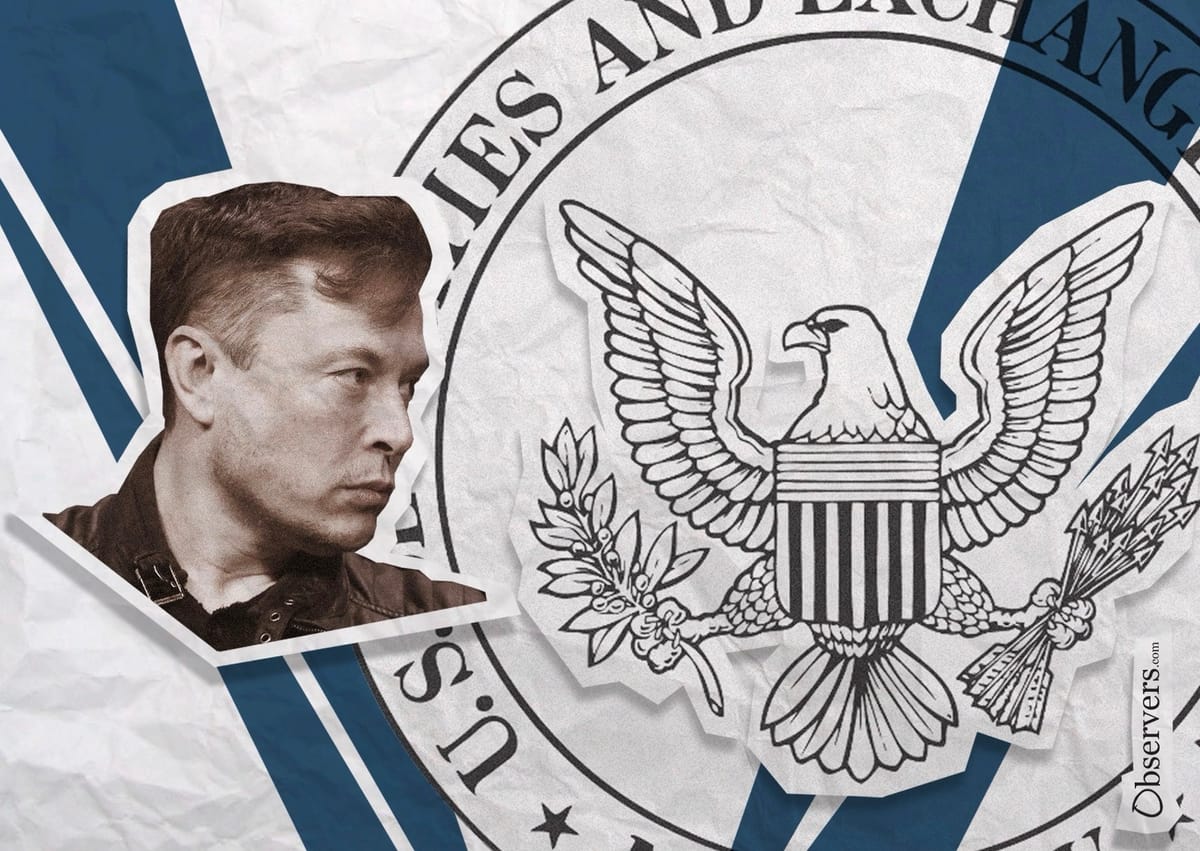
We are used to observing conflicts between the SEC and the crypto community: its allegations against Binance that resulted in the exchange paying the biggest fine ever, the argument with Coinbase over the necessity of a new regulatory framework, cases against Ripple, Kraken, the Tron Foundation, the list feels endless. Still, alongside its holy war, the Commission deals with other matters, which, unlike crypto, are indisputably within its scope of authority. The long-lasting confrontation with Elon Musk, who once publicly stated that he doesn't respect the SEC, is one of them.
The investigation into Elon Musk’s $44 billion acquisition of Twitter has been ongoing for over a year. The authority is checking whether the CEO of Tesla and SpaceX broke federal securities laws during the takeover back in 2022.
The SEC wants information on Musk’s purchases of Twitter stock, which he made ahead of his purchase of the social media platform. First, he submitted the information ten days after the statutory deadline; second, he submitted the forms reserved for passive investors, not those who intend to buy the company. Thus, he hid his position and allegedly prevented stock prices from skyrocketing. In the meantime, he bought more stocks within those ten days at lower prices, benefiting from other uninformed investors.
The documents submitted by the world's third richest man and his testimony via video call last July were not enough to reach a conclusion, the SEC states. After Musk refused to attend an interview last September, saying that the SEC was “harassing” him with subpoenas, the regulator sued him in an attempt to finally obtain his testimony.
This February, a U.S. Magistrate Judge ruled that Musk must testify. Musk's lawyers requested a review of the decision only to get the same answer from another judge on May 14: “The investigations Musk contends constitute harassment are legitimate government investigations.” The SEC is limited to 5 hours of questioning; the parties will jointly schedule the date, which must come before May 30.
While Musk’s attempts to delay the investigation raise concerns about the legitimacy of his deals, this might also be an unwillingness to let regulators snoop around in his business, and also a simple demonstration of power. It seems Musk's attempts to avoid the testimony are rather a part of the game than an effort to hide something important. Still, we’ll get the answer within the next 60 days unless Musk finds another tricky way to delay the interview.
After taking over Twitter, Musk renamed the company, now known as X. Top executives were fired, the number of users declined, the company was removed from public trading and faced criticism over an increase in hate speech. According to various estimates, its value is down by over 50%.
While the numbers are discouraging, Musk remains true to his idea of turning X into an everything app that can provide multiple services, including payments and instant messages. To offer payment services across the U.S., X will need a money transmitter license in each state. The company has received licenses in 25 states so far, and Musk shared that California and NY are close to supplementing the list.

